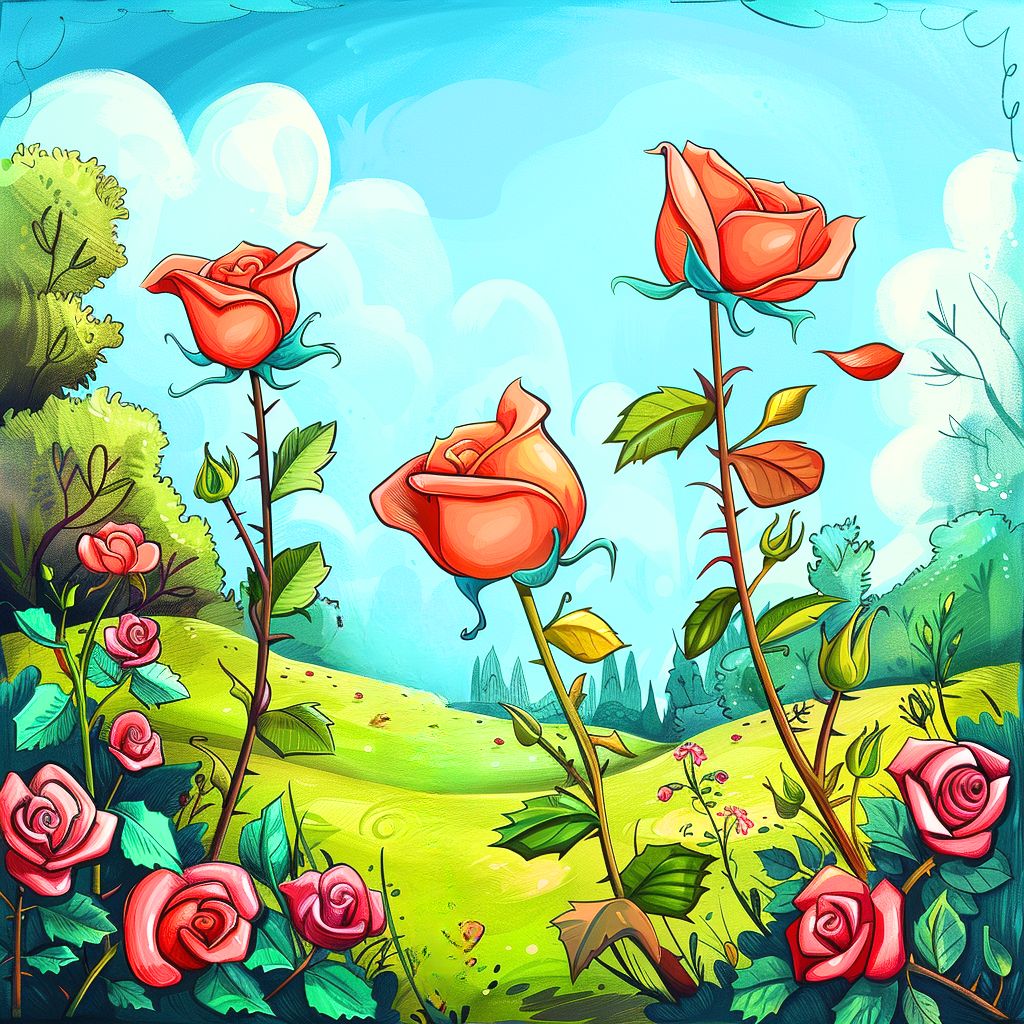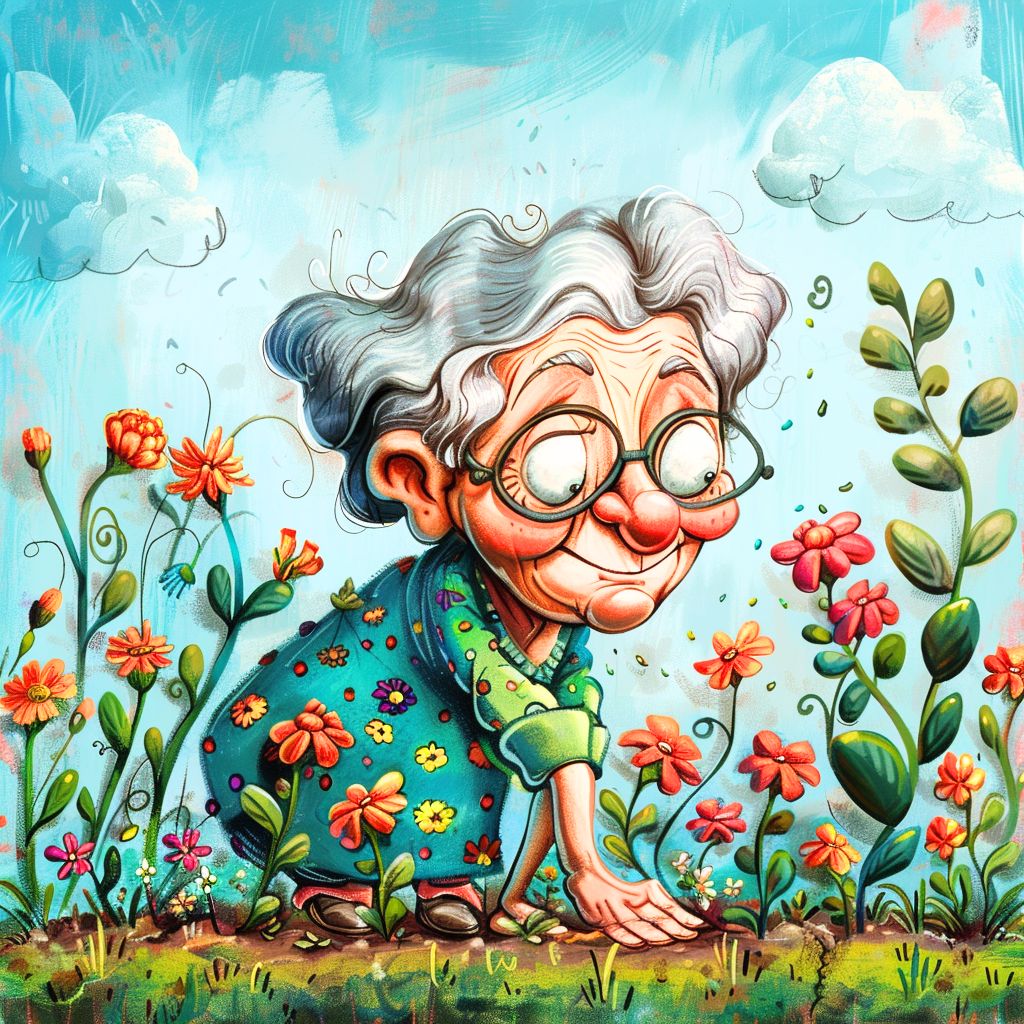Welcome to the colorful world of gardening idioms! These expressions, rooted in nature, add vibrant flair to everyday language. From “nipping it in the bud” to “blooming where you’re planted,” gardening idioms offer a fresh perspective on life’s challenges and triumphs. W
Whether you have a green thumb or simply enjoy a beautiful garden, these idioms will help you cultivate a richer vocabulary. Dive in and discover how these phrases can make your conversations blossom!
1. Nip it in the Bud
Got a small problem that could escalate if left unattended? That’s when you need to ‘nip it in the bud.’ This idiom means addressing an issue early before it grows into something bigger.
Originating from gardening practices, it refers to pinching off new buds to prevent them from developing into full-grown plants. By nipping something in the bud, you’re taking action to stop potential problems in their tracks.
Using ‘nip it in the bud’ highlights the importance of early intervention and can add a proactive twist to your conversation.
Example 1: “We need to nip this rumor in the bud before it spreads any further.”
Example 2: “She decided to nip the conflict in the bud by having an honest conversation with her team.”
2. A Late Bloomer
Sometimes, people take longer to show their true potential. That’s what we call a ‘late bloomer.’ This idiom is about individuals who develop their talents or abilities later than their peers.
In gardening, some plants bloom later in the season, taking their time to reveal their beauty. Similarly, late bloomers may take longer to achieve success but often shine brightly when they do.
Example 1: “Despite starting his career later than others, he turned out to be a real late bloomer in the tech industry.”
Example 2: “She was a late bloomer in school, but she eventually became the top student in her class.”
3. Come Up Roses
Feeling like everything’s going perfectly? That’s what it means when things ‘come up roses.’ This idiom signifies that situations are turning out exceptionally well, often better than expected.
The expression comes from the beauty and abundance of rose gardens when they’re in full bloom, symbolizing success and positive outcomes.
Example 1: “After months of hard work, her business started to come up roses.”
Example 2: “Their vacation plans were uncertain, but everything eventually came up roses.”
4. Put Down Roots
Thinking about settling down and establishing yourself in a new place? That’s what it means to ‘put down roots.’ This idiom is about creating a stable and lasting presence in a particular location or situation.
In gardening, plants put down roots to anchor themselves and absorb nutrients, ensuring their growth and stability. Similarly, putting down roots means committing to a place or community for the long term.
Example 1: “After traveling for years, they finally decided to put down roots in a small coastal town.”
Example 2: “She put down roots in the city, building a career and a network of friends.”
5. Sow the Seeds of
Planting the beginnings of a future outcome is what it means to ‘sow the seeds of.’ This idiom refers to actions or decisions that initiate a process leading to a particular result, often long-term.
In gardening, sowing seeds is the first step in growing plants, symbolizing the start of something new that will develop over time. Similarly, sowing the seeds of an idea or project means laying the groundwork for future success.
Example 1: “By investing in education, they are sowing the seeds of a brighter future for the community.”
Example 2: “Her early efforts in networking sowed the seeds of her successful career.”
6. Bloom Where You’re Planted
Embracing your current situation and making the most of it is what it means to ‘bloom where you’re planted.’ This idiom encourages thriving and flourishing regardless of your circumstances.
In gardening, plants often need to adapt to their environment to bloom successfully. Similarly, blooming where you’re planted signifies making the best out of your given situation and growing despite challenges.
Example 1: “Despite the challenges of her new job, she decided to bloom where she was planted and soon became a valued team member.”
Example 2: “Even in a small town, he found ways to bloom where he was planted and created a thriving local business.”
7. Dig in One’s Heels
When someone refuses to change their opinion or course of action, they ‘dig in their heels.’ This idiom conveys stubbornness or strong determination to stand firm.
Originating from the imagery of a person planting their feet firmly into the ground, like digging into soil, it signifies a resolute stance. Just as gardeners dig into the earth to make it stable, people dig in their heels to show their firm resolve.
Example 1: “Despite the new evidence, he dug in his heels and refused to change his mind.”
Example 2: “She dug in her heels and insisted on following through with the original plan.”
Turn Over a New Leaf
Starting afresh or making a significant change in one’s behavior or life is what it means to ‘turn over a new leaf.’ This idiom signifies a fresh start and a commitment to change for the better.
The phrase comes from the idea of turning a page in a book, symbolizing a new chapter. In gardening, leaves represent growth and renewal, making this idiom perfect for expressing new beginnings.
Example 1: “After years of unhealthy habits, he decided to turn over a new leaf and focus on his well-being.”
Example 2: “She turned over a new leaf by starting a new career and moving to a different city.”
9. Weed Out
Eliminating unwanted elements or people from a group or situation is known as ‘weeding out.’ This idiom refers to the process of removing anything undesirable to improve the overall condition.
In gardening, weeding out means pulling unwanted plants that compete with desired ones for resources. Similarly, weeding out in other contexts involves getting rid of inefficiencies or problematic factors.
Example 1: “The manager decided to weed out unproductive employees to boost the team’s efficiency.”
Example 2: “She weeded out unnecessary tasks from her schedule to focus on what truly mattered.”
10. Go to Seed
When something deteriorates or declines after a period of success, it’s said to ‘go to seed.’ This idiom implies that what was once thriving has become neglected or has lost its quality.
In gardening, plants go to seed when they stop blooming and start producing seeds, often signaling the end of their prime growing period. Similarly, going to seed indicates a decline from a former state of excellence.
Example 1: “After years of neglect, the once-beautiful garden has gone to seed.”
Example 2: “The neighborhood started to go to seed after the factory closed down.”
11. Bed of Roses
A situation that is comfortable, pleasant, and easy is often described as a ‘bed of roses.’ This idiom highlights a life or experience that is free from trouble or difficulty.
In gardening, a bed of roses is a beautiful and fragrant area, symbolizing luxury and comfort. Similarly, describing something as a bed of roses suggests it is idyllic and enjoyable.
Example 1: “Living in such a supportive community is truly a bed of roses.”
Example 2: “He thought managing the project would be a bed of roses, but it turned out to be quite challenging.”
12. Fresh as a Daisy
Feeling revitalized and energetic? That’s what it means to be ‘fresh as a daisy.’ This idiom describes someone who is lively, healthy, and full of energy.
In the world of gardening, daisies are known for their bright and cheerful appearance, often symbolizing freshness and vitality. Similarly, being fresh as a daisy means being in a state of peak freshness and vigor.
Example 1: “After a good night’s sleep, she woke up feeling fresh as a daisy.”
Example 2: “He looked fresh as a daisy after returning from his vacation.”
13. Growing Like a Weed
When something increases rapidly, it is said to be ‘growing like a weed.’ This idiom refers to fast and often uncontrollable growth, whether it’s a physical entity or an abstract concept.
In gardening, weeds are known for their ability to grow quickly and spread widely, often overtaking other plants. Similarly, ‘growing like a weed’ signifies rapid and sometimes overwhelming expansion.
Example 1: “The new startup is growing like a weed, expanding its customer base every week.”
Example 2: “His son is growing like a weed; he’s already outgrown last year’s clothes.”
14. Shrinking Violet
Describing someone who is very shy or modest, a ‘shrinking violet’ is a person who tends to avoid attention and prefers to stay in the background.
In the gardening world, violets are delicate flowers that can easily go unnoticed among more prominent plants. Similarly, a shrinking violet is someone who might be overlooked due to their reserved nature.
Example 1: “Despite her talents, she’s a shrinking violet and rarely speaks up in meetings.”
Example 2: “He’s no shrinking violet when it comes to defending his ideas, but in social settings, he’s quite reserved.”
15. Root and Branch
Addressing something completely and thoroughly, ‘root and branch’ means dealing with all aspects of an issue or situation. This idiom implies a comprehensive and deep approach to problem-solving or reform.
In gardening, removing a plant root and branch ensures that it’s entirely eradicated, preventing regrowth. Similarly, tackling a problem root and branch means addressing it from its foundation to its entirety.
Example 1: “The new management is determined to reform the company root and branch.”
Example 2: “They tackled the corruption in the organization root and branch, leaving no stone unturned.”
16. Flower Power
Celebrating peace, love, and non-violence, ‘flower power’ is a slogan and symbol associated with the 1960s counterculture movement. This idiom emphasizes the power of love and peace over aggression and conflict.
In the literal sense, flowers symbolize beauty, peace, and harmony. The term ‘flower power’ arose during the 1960s as part of the hippie movement, which advocated for peace and love in response to war and societal conflict.
Example 1: “Embracing the spirit of flower power, they organized a peaceful protest against the war.”
Example 2: “The festival had a flower power vibe, with everyone dressed in colorful, floral outfits promoting peace and love.”
17. Green Thumb
Having a natural talent for gardening and making plants grow is referred to as having a ‘green thumb.’ This idiom signifies someone’s exceptional ability to cultivate and care for plants.
In gardening, a green thumb is metaphorically green from all the plants that one successfully grows. People with a green thumb tend to have gardens that flourish and thrive under their care.
Example 1: “She has such a green thumb; her garden is the envy of the neighborhood.”
Example 2: “If you need help with your plants, ask him—he’s got a real green thumb.”
18. Thorn in One’s Side
Referring to a persistent problem or annoyance, a ‘thorn in one’s side’ is something or someone that continually causes trouble or irritation.
This idiom originates from the literal discomfort caused by a thorn sticking in one’s skin. In a figurative sense, it represents an ongoing source of frustration that is difficult to ignore or remove.
Example 1: “The noisy neighbors have been a thorn in my side ever since they moved in.”
Example 2: “The outdated software has been a thorn in the company’s side, causing frequent delays and issues.”
19. In Full Bloom
When something is ‘in full bloom,’ it’s at the peak of its beauty, growth, or success. This idiom is used to describe anything that is flourishing and at its best.
In gardening, flowers that are in full bloom are at their most vibrant and attractive stage. Similarly, when someone or something is in full bloom, they are thriving and showing their full potential.
Example 1: “Her career is in full bloom, with numerous awards and recognitions.”
Example 2: “The cherry blossoms were in full bloom, attracting visitors from all over the world.”
20. Hit the Hay
When someone is ready to go to bed or sleep, they might say they’re going to ‘hit the hay.’ This idiom means to go to sleep, often after a long or tiring day.
The phrase originates from when people slept on hay mattresses, so hitting the hay literally meant lying down to sleep on a bed of hay.
Example 1: “After a long day of work, I’m ready to hit the hay.”
Example 2: “We decided to hit the hay early to be well-rested for our hike the next morning.”

Hey fellow Linguaholics! It’s me, Marcel. I am the proud owner of linguaholic.com. Languages have always been my passion and I have studied Linguistics, Computational Linguistics and Sinology at the University of Zurich. It is my utmost pleasure to share with all of you guys what I know about languages and linguistics in general.




